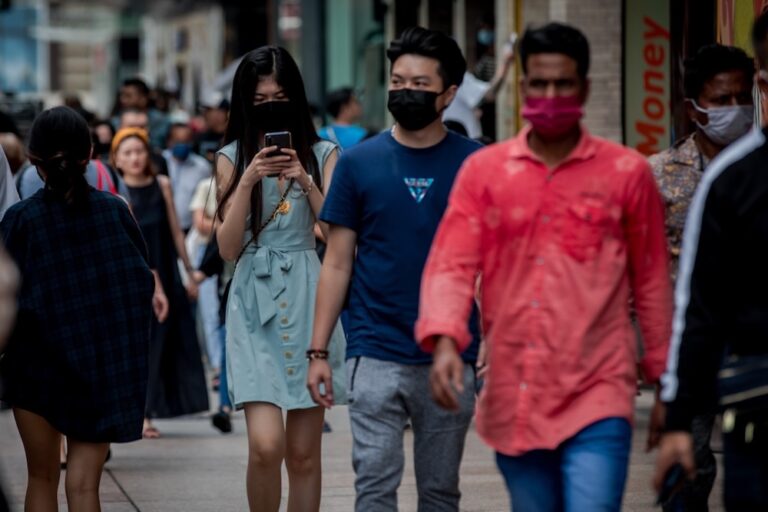(SEAPA/IFEX) – On 21 August 2007, the Tamil daily “Makkal Osai” (The People’s Voice) published a quote, “Heaven awaits those who repent”, accompanied with a picture of Jesus Christ clutching what appeared to be a can of beer and a cigarette. The paper had put up the item for its regular “Thought for the Day” […]
(SEAPA/IFEX) – On 21 August 2007, the Tamil daily “Makkal Osai” (The People’s Voice) published a quote, “Heaven awaits those who repent”, accompanied with a picture of Jesus Christ clutching what appeared to be a can of beer and a cigarette. The paper had put up the item for its regular “Thought for the Day” column, which featured quotes from famous personalities.
The Ministry of Internal Security suspended the newspaper on 24 August, one day after the Malaysian Indian Congress (MIC), one of the political parties in the ruling coalition, lodged police reports against the newspaper and called for its closure. The paper was said to have violated the permit conditions of the 1984 Printing Presses and Publications Act (PPPA) by publishing materials that are damaging or potentially harmful to public peace, morality and safety.
Under the PPPA, the internal security minister is empowered to grant, suspend, revoke printing licences and control the import and distribution of foreign publications, and any decision cannot be appealed or subject to judicial review. Violators can be punished by up to three years’ imprisonment or a fine of up to RM20,000 (approx. US$5,718), or both.
SEAPA agrees with its local partner, the Centre for Independent Journalism (CIJ), that, while religious sanctity has to be respected, the “knee-jerk” suspension on the newspaper is a serious blow to freedom of expression.
The month-long suspension will deprive the Tamil-literate community of an important source of information as “Makkal Osai” is one of only two Tamil-language newspapers in the country; the other being aligned to the MIC. Prior to its suspension, “Makkal Osai” had criticised the MIC over its debt-ridden investment arm, Maika Holdings. An Indian online website ( http://www.indianmalaysian.com/ ) claimed that the newspaper was suspended to silence criticism against the party prior to and during Maika Holdings’s annual general meeting on 30 August.
CIJ also argued that the suspension was unwarranted as the paper had apologised for two days in a row immediately after making the admitted error, and suspended indefinitely the graphic artist who chose the picture. Although some Christian leaders initially asked for action to be taken against the newspaper, others have since accepted the apology, calling the punishment “drastic” as a warning would have sufficed.
Religion is one of the “sensitive” topics in the multi-religious country. Ethnic Indians, mostly Hindus, comprise 10 percent of the 26 million population. Chinese, mostly Christians and Buddhists, make up 25 percent, while Malay Muslims comprise 60 percent.
In February 2006, Chinese-language dailies “Guang Ming Daily” and “Berita Petang” were suspended for two weeks, and “Sarawak Tribune” was suspended indefinitely over publication of the controversial Prophet Muhammad cartoons (see IFEX alert of 24 February 2006).
The Malaysian government is also notorious for taking high-handed actions against the press upon any complaint from the ruling coalition. The independent web-based daily “Malaysiakini” was raided in January 2003 after the dominant ruling party, United Malays National Organisation, lodged a police report alleging the news site of sedition. The police dropped investigations in July 2005.


